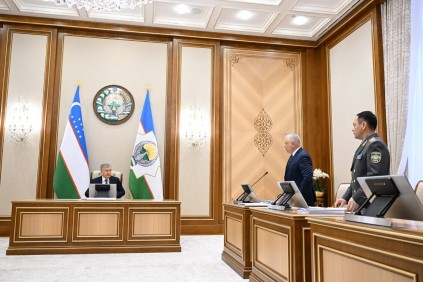The Ministry of Justice, together with the Anti-Corruption Agency and a number of other departments, submitted for discussion the draft presidential on anti-corruption decree and resolution.
The following were proposed:
- the president's draft Creation of an uncompromising anti-corruption environment, sharp reduction in corruption factors in government bodies and ensuring public participation in this process Decree;
- the president's draft Additional measures for the effective organization of anti-corruption activities resolution.
The drafts were developed by the Ministry of Justice in conjunction with the Anti-Corruption Agency and a number of other ministries on the basis of instructions from the head of state.
The drafts provide for:
- introduction of an “open electronic register of persons found guilty of committing corruption offenses”;
- the introduction from January 1, 2022 of a system of compulsory declaration of income and property by civil servants, heads and deputies of state enterprises and institutions with a state share of more than 50 percent, their spouses and minor children;
- the establishment in the Criminal Code of a clear list of articles falling under the category of corruption crimes;
- harsher punishments for corruption crimes up to long-term imprisonment;
- approval of the state anti-corruption program for 2021-2022;
- introduction of liability for illegal enrichment found in the process of declaring income and property.
It also provides for the establishment of restrictions on the application of mitigating regulations when serving a criminal sentence against persons who have committed corruption crimes, and the introduction of other similar radical anti-corruption measures into legislation.
In addition, according to the project, persons included in the open e-register of persons found guilty of committing corruption crimes will be prohibited from:
- joining the civil service and receive government awards;
- nominating themselves for positions, elected and appointed through a special procedure;
- becoming a member of citizen councils and interdepartmental collegial bodies under state bodies;
- being a party in public procurement and public-private partnership as a business entity;
- holding senior positions in organizations with a state share of over 50 percent and in state educational institutions.














